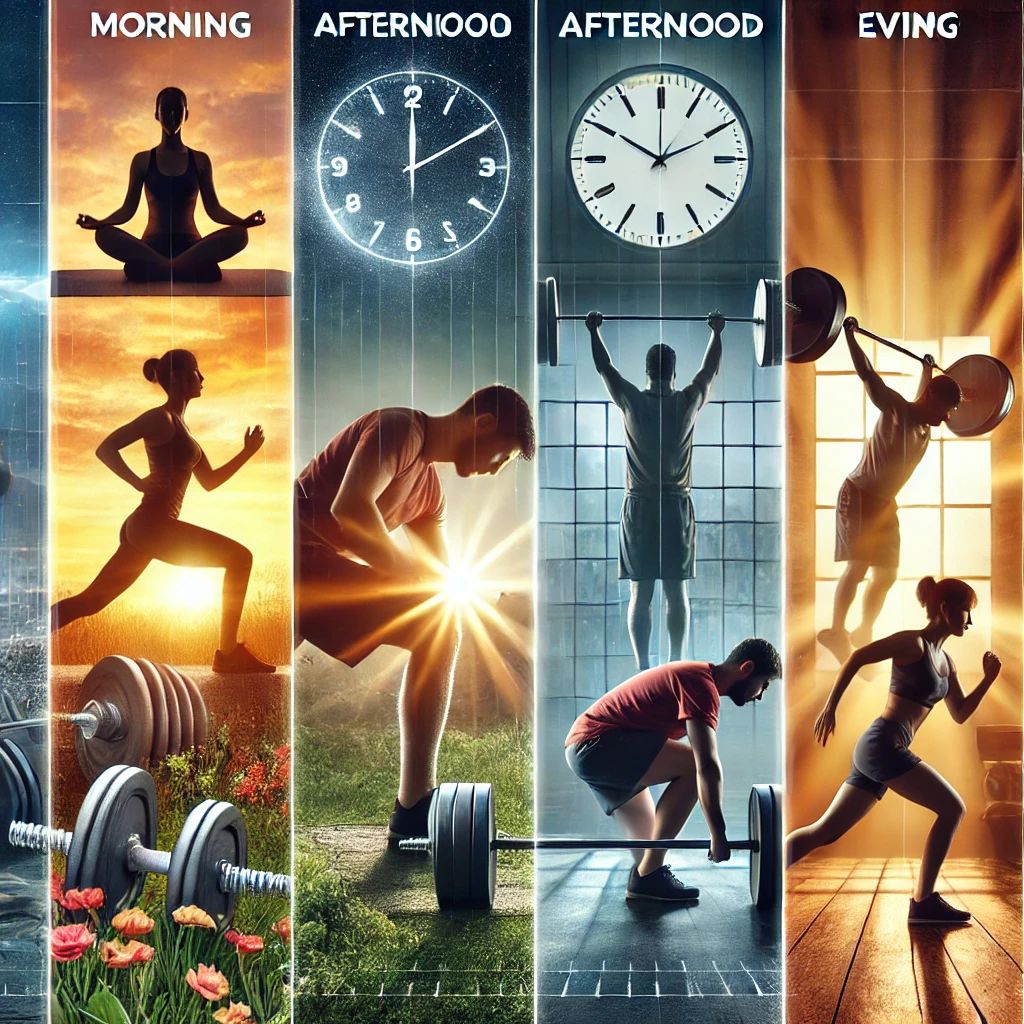
Why Timing Matters in Your Fitness Routine
The time of day you train can have a surprising impact on your energy, performance, and overall fitness results. Morning, afternoon, and evening workouts each come with unique advantages, and choosing the right time for exercise depends on factors like your body’s natural rhythms, lifestyle, and fitness goals. Here’s a breakdown of how training at different times of the day can affect your workout results.
1. Morning Workouts
Morning workouts are popular for their energizing start to the day, but they also come with specific benefits and challenges:
Boosts metabolism: Exercising in the morning helps kickstart your metabolism, allowing you to burn more calories throughout the day, even while at rest.Supports consistency: People who work out in the morning are often more consistent, as early exercise minimizes the chances of interruptions or schedule conflicts later on.Increases focus and energy: A morning workout releases endorphins, which can improve mood, focus, and productivity throughout the day.Challenges: Body temperature and energy levels are typically lower in the morning, which can make intense workouts feel tougher until your body warms up. A longer warm-up may be necessary to prepare your muscles and prevent injury.2. Afternoon Workouts
Afternoon workouts offer a balance between morning and evening training, with several performance benefits:
Peak strength and endurance: Your body temperature naturally rises in the afternoon, enhancing muscle function and strength. This makes it an ideal time for weightlifting or endurance exercises.Lower risk of injury: Warmer body temperatures improve flexibility and reduce the risk of injury, allowing for a safer and more effective workout.Better reaction times: The afternoon is often when cognitive function peaks, which is beneficial for coordination and agility-based exercises or sports.Challenges: If you have a busy work or personal schedule, finding time for an afternoon workout may be challenging, especially if you have a job with irregular hours or meetings.3. Evening Workouts
Evening workouts are ideal for those who prefer a slower start to their day, offering benefits that complement night owls:
Higher physical performance: Studies show that strength, flexibility, and stamina are generally highest in the early evening due to peak body temperature, which can lead to more effective strength training and cardio sessions.Stress relief: An evening workout is a great way to unwind and relieve stress accumulated throughout the day, promoting better mental well-being.Supports better sleep for some: Exercise can help promote better sleep quality, but timing is key. Intense exercise too close to bedtime may raise adrenaline levels, which can interfere with sleep in some individuals.Challenges: Evening workouts may be more prone to interruptions from social or family commitments, and exercise close to bedtime may impact sleep quality for those sensitive to late-day activity.4. Choosing the Best Time Based on Your Goals
Different goals may benefit from different workout times:
Weight loss: Morning workouts, especially fasted cardio, may support fat loss goals by tapping into stored fat for energy. However, overall consistency and total daily calorie expenditure are more important than timing alone.Building muscle and strength: Afternoons and evenings are optimal for strength training because of peak body temperature and strength levels. Lifting when your muscles are warmer helps maximize performance and reduce injury risk.Improved endurance: Afternoon workouts are ideal for endurance training, as your body temperature and stamina are higher, which can improve overall endurance and reduce fatigue.Improving sleep and reducing stress: If your goal is to relieve stress and improve sleep quality, evening workouts that are moderate to low intensity can help you unwind. Avoid vigorous exercise close to bedtime to prevent interference with sleep.5. Listen to Your Body’s Natural Rhythm
Your circadian rhythm, or internal body clock, influences your body temperature, hormone levels, and energy peaks. Understanding your natural rhythm can help you optimize workout timing:
Morning people: If you feel most energetic in the morning, working out early can boost your mood and help you maintain a routine that fits your lifestyle.Night owls: If you’re naturally more alert in the evening, you may find evening workouts more effective and enjoyable, as you’ll have higher energy and strength levels.Experiment with timing: Trying different workout times can help you find what feels best for your body. Track your energy, performance, and mood to determine which time aligns best with your goals.Conclusion: Finding Your Optimal Workout Time
The “best” time to work out depends on your body’s rhythms, lifestyle, and fitness goals. Morning workouts may offer a boost in metabolism and consistency, while afternoon and evening sessions often allow for peak performance. Experimenting with different times can help you find the schedule that supports your energy levels and long-term goals, making exercise a sustainable part of your daily routine.
The article was prepared by Ira Levovich.



